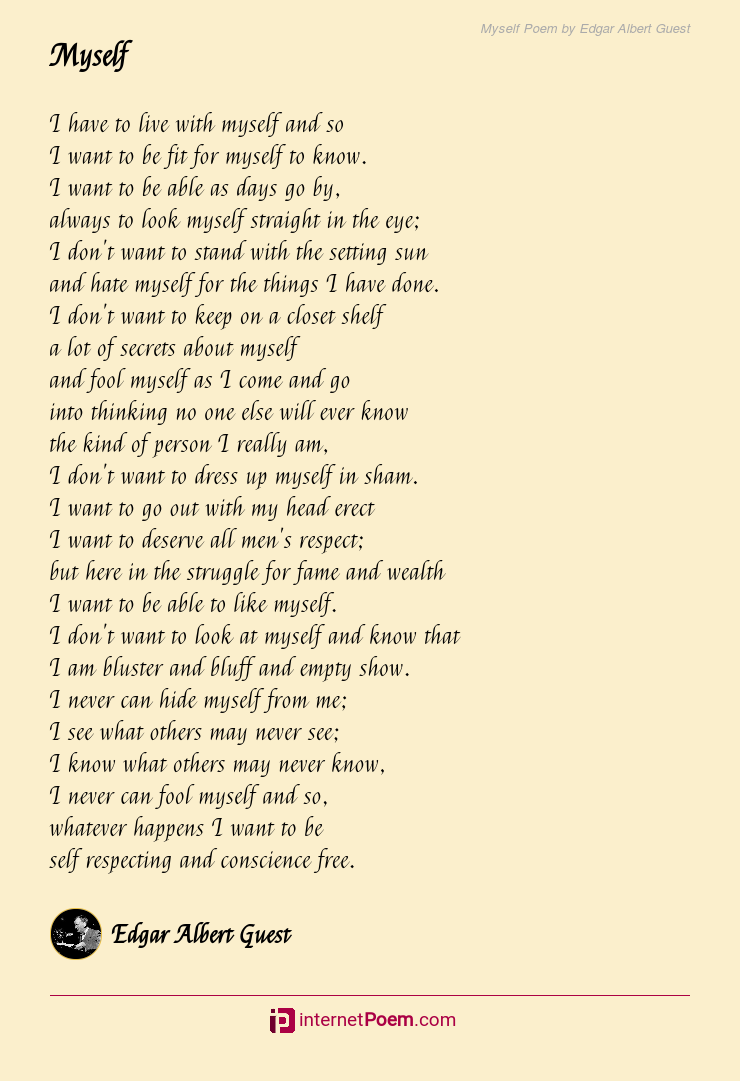

What I guessed when I loafed on the grass, Swift wind! Space! My soul! Now I know it is true what I guessed at Second, Transcendentalism, something Emerson and others like Henry David Thoreau had developed and promoted in hundreds of sermons and lectures, might not have been as long-lasting had it not been for Whitman's poetry. See The Greeks Had a Word For It to lengthen your emotional vocabulary.

In Spanish there is a word duende, which means a visceral affectation to art. Emerson's word choice, "not blind," was thus particularly apt, showing just how affected he was by the poem. First, Whitman's poetry was deeply sensual, dealing with what is perceived in sight, sound, touch, etc., and how that data imprints itself in our body of knowledge. I included Emerson's words for two reasons. Only the lull I like, the hum of your valved voice. not custom or lecture, not even the best, I am very happy in reading it, as great power makes us happy." Loafe with me on the grass. I find it the most extraordinary piece of wit and wisdom America has yet contributed. In response to receiving a copy of Leaves, Emerson wrote: "I am not blind to the worth of the wonderful gift of Leaves of Grass. Whitman's first poetic work nevertheless caught the attention of Ralph Waldo Emerson, the foremost philosophical idealist, and writer in the United States. Reeds, commonly known as large-leafed grass, grow next to the River Arun in Sussex, UK. Not an inch nor a particle of an inch is vile, and none shall be less familiar than the rest. Welcome is every organ and attribute of me, and of any man hearty and clean, The epic poem was sexually explicit and contained the unbridled joy of life and love, admiration for the immediate and profound, and a call for human connectedness beginning and ending with Whitman's self. For more on the biology of our interconnectivity read Paul Nurse's What is Life? It was a collection of fifty-two untitled poems, and the most cohesive became known as "Song of Myself." Its first lines firmly asserted: "I celebrate myself, And what I assume you shall assume, For every atom belonging to me as good belongs to you." Whitman was in a sense correct although he should have said "gene" rather than atom. It did not rhyme or contain rhythmic features like the poetry of Whitman's contemporaries Longfellow and Tennyson. The palpable is in its place and the impalpable is in its place. The suns I see and the suns I cannot see are in their place, The moth and the fish eggs are in their place,

I resist anything better than my own diversity,Īnd breathe the air and leave plenty after me, It was, as author Walt Whitman (March 26, 1892) expected, poorly received.īothered not was this hitherto unknown poet. In 1855, with little fanfare and only a few printed copies (which barely included the author's name), Leaves of Grass was published in the United States.


 0 kommentar(er)
0 kommentar(er)
